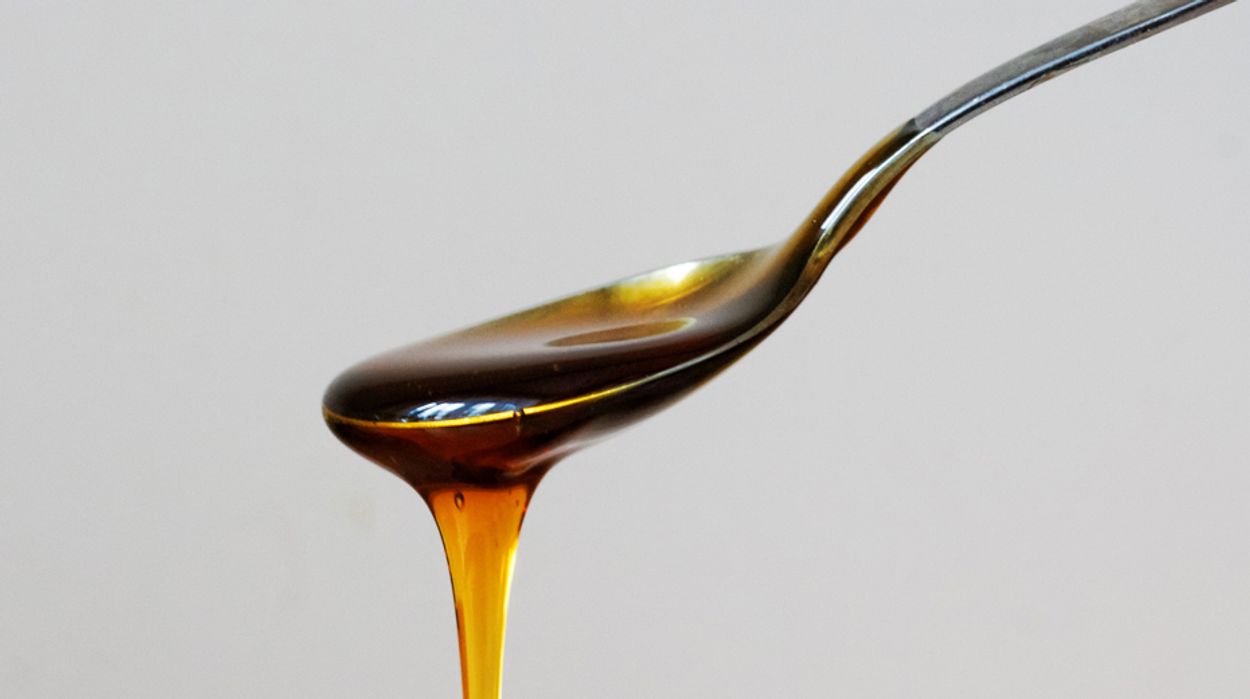Today
•
reading time 3 minutes
•
–
3884 views
•
keep
—-
Do you love honey just like Winnie the Pooh, or do you only eat it when you have a sore throat? The delicious sweet stuff is even said to have medicinal properties. But is that actually true? Anyway, there are many facts and fables surrounding the bee product. Curious what is true and what is not true? Read on soon.
–
We all know that honey is made by bees. They have to do hard work for that, with the result: our beloved honey. What is actually known about the by-product? Read our five facts and fables.
–
Myth: Honey is better than sugar
Honey is a natural product. Many people therefore think that honey is better than sugar. This is not true, honey consists almost entirely of the same substances as sugar. In addition, sugar itself is also a natural product, because it comes from sugar beets or sugar cane.
–
Honey contains fructose and glucose. These substances are broken down and digested in the same way as sugar, says international honey expert Wim Reybroeck in a statement previous box office broadcast. Glucose is a sugar that is quickly absorbed by the body and therefore provides immediate energy. Fructose is absorbed more slowly by the body and thus provides long-lasting energy.
–
So it is a misconception to think that honey in your tea is better than sugar, says the Nutrition Center. It is true that there is more moisture in honey. As a result, it contains fewer calories per hundred grams.
–
It is also thought that honey is healthier because it contains more vitamins than sugar. The Nutrition Center debunks that: honey does contain vitamins, trace elements, minerals and protein, but in such a small amount that it has hardly any added value.
–
Fact: Honey is used as a medicinal medicine
Whether the effects really work has never been proven. Yet honey has been used for thousands of years against various health complaints. True or false, many do use it against enlightenment. For example, linden honey can relieve a cough, sore throat or headache, says Reybroeck.
–
According to him, it can also be used for wound care and has a relieving effect on burns.
–
Please note: the European Food Safety Authority (EFSA) has never claimed that honey actually has medicinal properties.
–
Myth: Honey is in the disc of five
Not true, although you might think so. Because honey is seen as a liquid sugar, it is not recommended for your daily food intake, i.e. you should not eat too much of it. It’s okay to put a little in your yogurt or tea.
–
Fact: Small children under the age of one are not allowed honey
In children under one year of age, the intestinal flora is not yet fully developed, says the RIVM. This allows the Clostridium bacteria to enter the intestines and produce toxin. As a result, there is a chance that a child will develop the serious disease botulism. The chance that a child will get this disease is not great. The bacteria can be found in honey. It can be spread through the legs of bees and end up in honey.
–
Children older than one with a fully developed intestinal flora can consume honey without worry.
–
Fact: Honey can’t go bad
That’s true. Honey can stay good forever. If the honey is properly sealed from moisture, it can therefore be kept indefinitely. For example, they have found ancient honey in the graves of ancient Egyptians that can still be consumed today. This has to do with the certain enzymesthe high sugar content and the low moisture content of the product.
–
Honey can crystallize. This will harden the honey and make it seem unusable. Still, there is a simple trick to get the honey back to normal. You just need to warm up the honey.
–
Source: Nutrition Center / Cash Register / Science in Pictures
—


